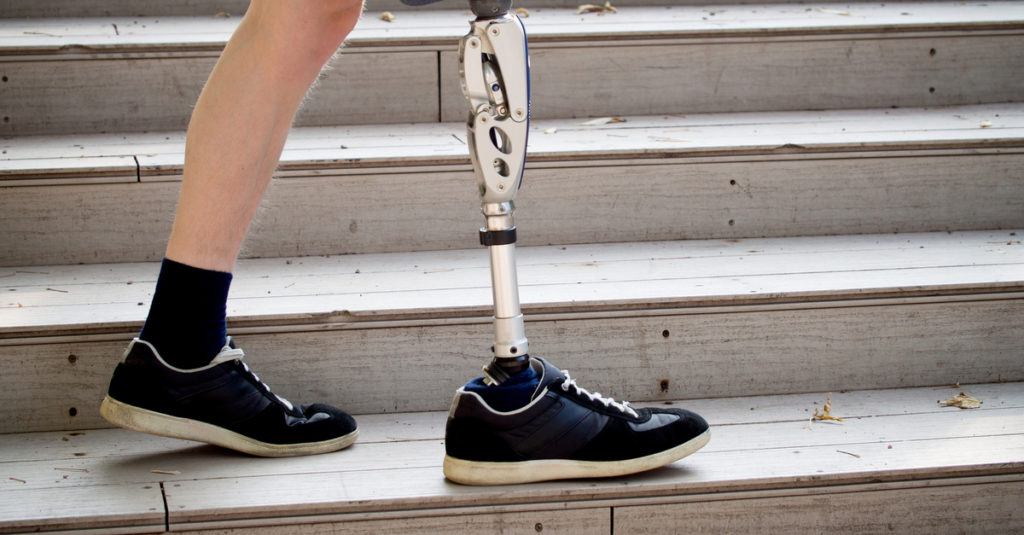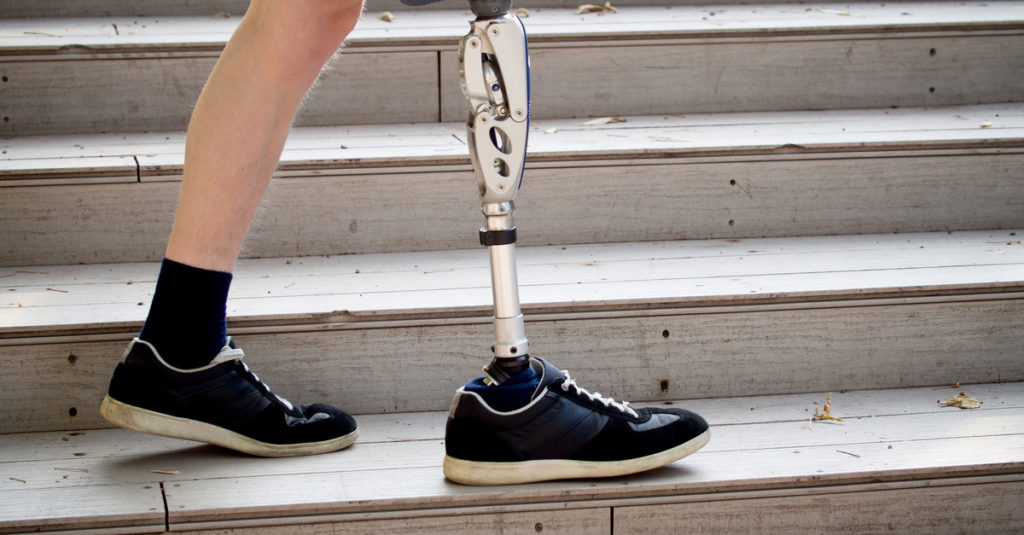A prosthesis, for an amputee, is something that becomes as much a part of their body as their natural limbs. That’s because you come to depend on it so much that you start to consider it a part of your real body.
That’s the goal, at least, with a well-fitting prosthesis. But what makes for a great prosthesis? What factors go into giving you the best, most comfortable, most productive fit for your body so that you can depend on your prosthesis and use it to live a full, active life?
The Fit of Your Socket
The first thing we as prosthetists try to make sure works well for you is the socket fit.
Socket fit is extremely important. When people have problems with their prostheses, it usually starts with the socket not fitting properly.
We take great care to ensure a custom socket fit through the combination of cutting-edge technology, custom materials, and decades of experience. Our goal is to mitigate the amount of friction and impact on your socket that can result in discomfort at best and pain at worst.
A properly-fitted socket will give you:
- Better control over your prosthesis’ function
- Reduced chance of friction between your limb and the socket (accomplished by fitting more snugly)
- More comfortable, healthier skin
There are a lot of factors that determine how well your socket will fit, from the material of the socket to the custom sock liner to how the prosthetic limb is suspended. Your prosthetist can go through the options with you and come up with a proper fit.
Alignment of the Prosthesis
How well all of the components of your prosthesis fit together is what we call alignment. A properly-aligned prosthesis is functional and comfortable. One that is misaligned is uncomfortable, inadequate, and unacceptable.
There are a lot of things that we consider when aligning your prosthetic device. These things include your residual limb, the size and shape of your body, your posture, the specific type of components used in your device, your control over the prosthesis, and your feedback when wearing the device.
A prosthetist takes all of the above into consideration and works with you to find the proper alignment that makes you mobile, fully functional, and comfortable. A properly-aligned prosthesis is the goal.
You!
The third factor in how well a prosthesis works is you! Specifically, we’re talking about your life, your abilities, and how well you can control the device.
We’ll look at your lifestyle - what you like to do, how active you are - plus what you do for work, your mobility, muscle strength, flexibility and coordination, stamina, balance, and more. We’re looking not just at what you can physically do now, but what you could do later.
It’s not just physical abilities, though. We also look at your mental state and how well equipped you are to handle the prosthesis and adapt to its use. This is best accomplished with physical therapy and counseling, if necessary, and we’ll work with you to help navigate this road you’re on so that you have a positive experience.
Getting the Best Prosthesis
As you can see, it’s not just about the prosthesis itself. But it’s a big part, and that’s where we come in. Our job is to make you the best prosthesis possible -- one that fits well, works well, and adapts well to your body so that it feels like an extension of yourself.
If you have any questions, or need to explore options with a prosthesis, feel free to talk to us. We’re happy to help you find the right prosthesis and the right team to support you in your journey.

